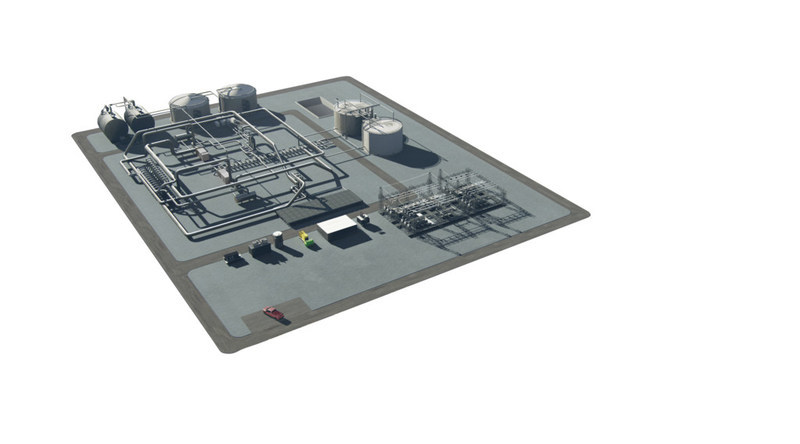Malta Inc. (Cambridge, Mass.), a developer of grid-scale, long-duration energy storage, and Bechtel (Reston, Va.), announced they are teaming up to pursue new energy storage projects around the world. The companies will work together to develop and deploy Malta’s 10-150+ hour energy storage technology in a variety of grid-scale applications.

Artist’s rendering of a Malta 100-MW, 10-hour, 1,000-MWh energy storage plant. Courtesy: Malta Inc.
“Teaming up with Bechtel is a perfect fit for Malta,” said Al Morales, Chief Financial Officer of Malta. “Bechtel’s deep understanding of the Malta system’s components, broad footprint and customer base, and proven track record of delivering successful projects will help Malta to speed and smooth the energy transition.”
Working together, Bechtel and Malta intend to identify and seize opportunities to deploy long-duration energy storage plants that store electricity for days or weeks – converting intermittent power from sun and wind into reliable, on-demand, baseload power. The ambition is to leverage the Malta system to produce carbon-free electricity to decarbonize industrial, agricultural, building, and other sectors.
“We are delighted to be collaborating with Malta to advance the deployment of its innovative and scalable storage solution that will enable the continued global expansion of renewable energy generation portfolios. The lack of long-duration energy storage solutions remains a key challenge for the renewable energy industry,” said Bechtel’s renewables sector lead Scott Austin. “There is no silver bullet for decarbonization, and Bechtel is committed to leveraging our engineering and construction expertise to support the rapid advancement of technology solutions that can meaningfully advance the transition to a net zero environment.”
The collaboration will focus on near-term actions to jointly develop a portfolio of long-duration energy storage projects.
The Malta system can firm and integrate variable renewable energy into existing generation portfolios, enabling the addition of vastly more solar and wind power and easing utilities’ pathways to meet decarbonization goals and mandates. The Malta system can be integrated with retiring fossil-fueled assets, like coal-fired plants, to reuse existing infrastructure, prevent job losses, and preserve the tax base of local communities. The Malta system can serve as a clean power and heat hub to provide clean energy for existing C&I businesses and districts, enable economic development, and attract new business investment from the digital, agricultural, and industrial sectors.